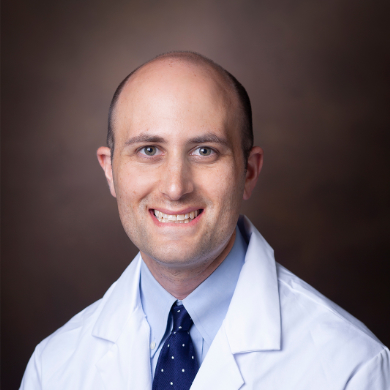
Researcher Profiles

Alexander G. Bick, M.D., Ph.D.
Vanderbilt University Medical Center
2021 Funding recipient
Identifying anti-inflammatory therapeutics that prevent clonal hematopoiesis progression in humans
Focused Impact Research Grant 2021
PROJECT SUMMARY
As we age, our blood cells develop mutations. Most mutations are harmless. But sometimes, a mutation gives one blood cell an advantage over others. The mutant cell then expand causing “clonal hematopoiesis.” More than 10% of individuals over 70 have clonal hematopoiesis. A small number of these people develop blood cancer. We do not have treatments to stop people with clonal hematopoiesis from developing blood cancer.
One clue to stopping blood cancer, comes from people who are born with a mutation in the RUNX1 gene. These patients get clonal hematopoiesis at an early age. They also develop blood cancer at a much higher rate than others. Mice with the RUNX1 mutation have increased inflammation. Blocking inflammation in mice slows clonal expansion and prevents blood cancer. However, this theory has not been tested in humans.
Our project directly tests whether blocking inflammation in humans stops clonal expansion and prevents blood cancer. First, we studied people who are born with mutations that lead to less inflammation and test whether they have less clonal expansion and less blood cancer. If this is true, then medications that decreasing inflammation may be a treatment for patients with clonal hematopoiesis. We have performed this analysis in ~5,000 individuals with clonal hematopoiesis and identified that germline genetic mutations in specific pathways (for example TNF-alpha) appear to have specific effects on different CHIP driver mutations. A manuscript describing this work is in revision at Nature Aging. We are very excited by this line of inquiry and are working to expand this analysis to larger datasets beyond the funded period with the support of NIH funding.
Second, we leveraged a set of ~300,000 Vanderbilt patients who had blood drawn ten years ago. We broadly examined whether any medicines that patients were started on changed the growth rate of clonal mutations. We were particularly focused on anti-inflammatory medications as if blocking inflammation stops clonal growth, we would expect that people on anti-inflammatory medicine will have slower clonal growth. We tested blood from 3,000 individuals over 60 with multiple blood samples. A subset of ~600 individuals had clonal mutations at both timepoints and did not have blood cancer. We were surprised to learn that clones not only increase in size but also decrease in size. We performed multiple analyses to identify what medications individuals were on and how these medications associated with clonal growth. We identified several unexpected associations, for example the supplement turmeric (which has been previously suggested to have anti-cancer properties due to methylation) appears to slow clonal expansion in patients with DNMT3A clonal hematopoiesis. However given the tremendous fluctuations we observed in clone size (even in the absence of medications), we plan to perform experimental studies to test these top hits before widely publicizing these findings.

